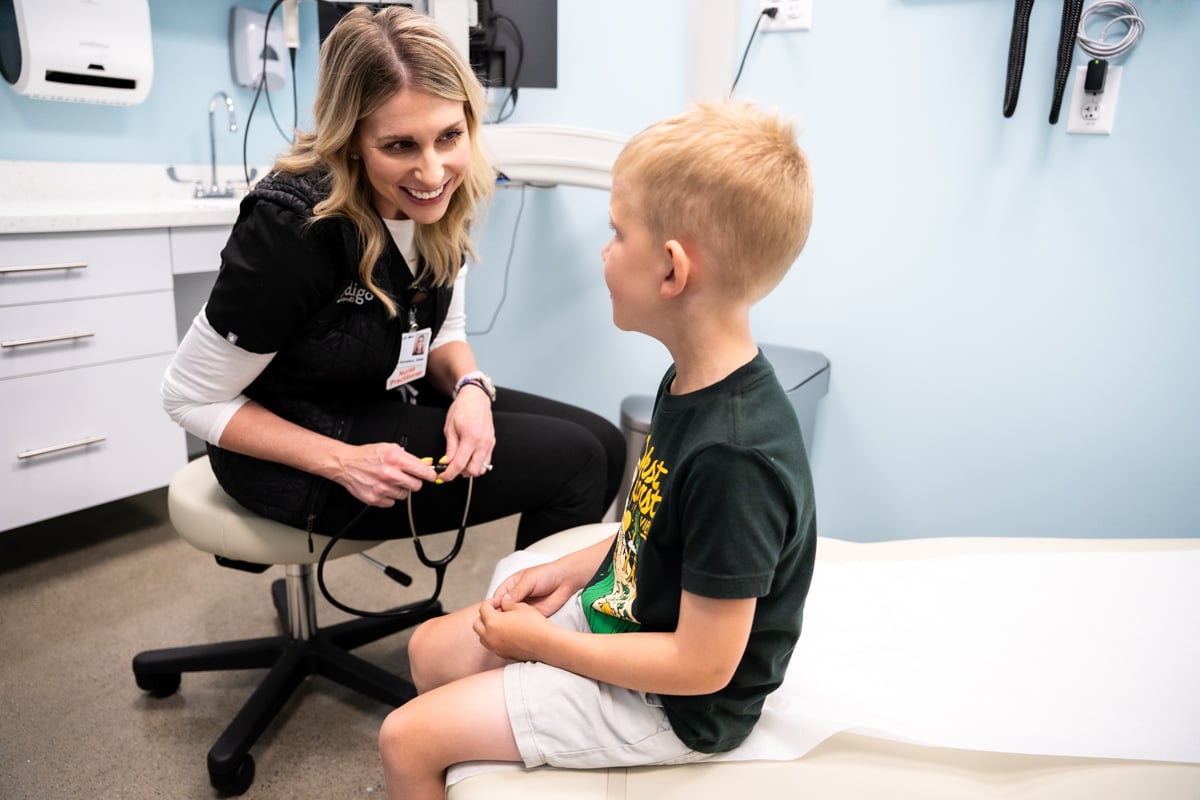Whether you're out working in the garden, strolling through your favorite forest or spending time by the pool, summertime isn’t completely care-free. You still need to take a few precautions to maintain your health.
Here are some of the most common summer health issues you should watch out for along with how to prevent and treat them throughout the season.
1. Food poisoning
Summer means that more people than ever are enjoying the fresh fruits and vegetables the season has to offer. Unfortunately, this is a season where more people are apt to get food poisoning due to improper food preparation, cross-contamination and unwashed whole foods.
On top of that, warm weather offers a ripe environment for the growth of bacteria. Should you fail to properly store or refrigerate your leftovers, you may find your stomach feeling queasy. While walk-in clinics are adept at treating minor stomach illnesses, the Centers for Disease Control and Prevention estimates that nearly 3,000 Americans die from food poisoning every year.
The best way to cope with food poisoning is by drinking plenty of water and resting as much as you can. It's common for people who suffer from food poisoning to lose water through vomiting and diarrhea. Drink hydrating fluids with plenty of electrolytes to ensure your body is strong enough to fight off the infection. Walk-in clinics may also prescribe antibiotics to help your body rid itself of the infection.
2. Sunburns
Sunburns are among the most painful (and common) summer conditions. When you spend your summer days lounging poolside, it can be easy to forget to reapply sunscreen after a dip in the water. Unfortunately, intense burns can damage your skin, lead to greater risk for skin cancer and cause painful blisters.
While most sunburns go away on their own within a few days, some burns can necessitate a trip to your local urgent care. Blistering sunburns, in particular, are known to cause serious pain and increase the risk of skin cancer. While pale, freckled skin is the most likely to suffer a burn, even those with darker skin must be careful to apply sunscreen to keep their skin healthy. Try treating your sunburn with aloe vera creams and gels to deter the worst of your symptoms. Prevent this issue from happening again by wearing plenty of sunscreen, investing in fashionable floppy hats, and avoid venturing outside during the hottest parts of the day (mainly between 10 a.m. and the early evening).
3. Heat stroke and heat exhaustion
While many people love to spend a nice summer day outside, it can be easy to succumb to heat exhaustion. Heat exhaustion occurs when you spend prolonged periods of time outside in temperatures above 90 degrees Fahrenheit. This can cause your internal body temperature to rise considerably, leading to heat exhaustion. The condition can be made even worse if you're dehydrated.
Though this condition isn't fatal, it can lead to a heat stroke or a trip to your medical clinic. You'll typically experience a rise in your heart rate, nausea and dizziness, muscle cramps and fatigue. When you start to notice these signs of heat exhaustion, get into a cooler environment and drink plenty of water. You also can cool down your body even more by applying an ice pack to your forehead or by taking a cool shower. Avoid the ill effects of heat exhaustion by staying inside as much as you can on particularly hot and humid days.
4. Asthma and allergies
While spring is most commonly associated with seasonal allergies, the summer can be even worse for some people. Pollen, flowering plants, increased levels of mold growth and an influx of furry friends on your favorite hiking trail can be enough to spur an allergic reaction in just about anyone. It's common for allergy sufferers to seek treatment for a cold at local walk-in clinics only to be told that they have seasonal allergies.
Allergies can also trigger asthma attacks. Asthma conditions are made even worse in humid conditions. Humid air can trap and hold allergens for longer periods of time, causing allergic reactions to persist in many sensitive individuals. The best way to keep your allergy symptoms at bay is by avoiding triggers. Stay inside when pollen counts are high, and invest in an air conditioner and dehumidifier to prevent mold growth from keeping you benched during your favorite summer activities.
5. Colds and the flu
Summer isn't known for its colds, but unfortunately, colds happen all year round. On top of that, the summer virus known as the enterovirus is particularly common during the summer months. This virus creates cold and flu-like symptoms, including a scratchy throat, fever, headache, and even a rash in some people.
If you find yourself frequenting crowded places in nice weather, like the pool or public market, you are at an even higher risk for catching a cold. Visit a nearby walk-in clinic for the proper diagnosis and treatment and be sure to wash your hands frequently to dispel germs and bacteria from entering your system.
6. Bug bites
Bug bites are one of the worst summer ailments you might experience. Between mosquitos, ticks and bees, a simple day in the backyard can quickly turn sour. Worse yet, many of these biting bugs and insects have the potential to carry illnesses, such as Lyme and parasites. In fact, tick activity is the highest between the months of May through July, meaning that we're coping with the worst of tick season right now.
Luckily, there are a few ways to prevent bugs from invading your home. Always wear bug spray when you perform outdoor activities, and try to burn a citronella candle when you're enjoying time in your backyard. Some families have also found great success with mosquito nets and other forms of screens to block bugs around their patios and gardens.
If you're ever worried about the condition of a bug bite, don't hesitate to visit your local urgent care clinic for prompt medical attention. Certain spider bites and stings might cause a terrible reaction in some people. At the first sign of any rash, severe pain or pus, be sure to check for walk-in clinics in your area.
Taking action
While it isn't easy to plan for all of these summer ailments, knowing the signs and treatment options are among the best ways to keep yourself safe. When you're in need of medical attention this summer, be sure to rely on the walk-in clinic you can trust to keep you safe.
At Indigo Health, our clinics are staffed by highly trained medical providers, offering friendly care. Whether you're suffering from one of these common summer ailments or some other minor illness or injury, we have the expertise and experience necessary to give you the best medical care around. Contact us today for more information.


